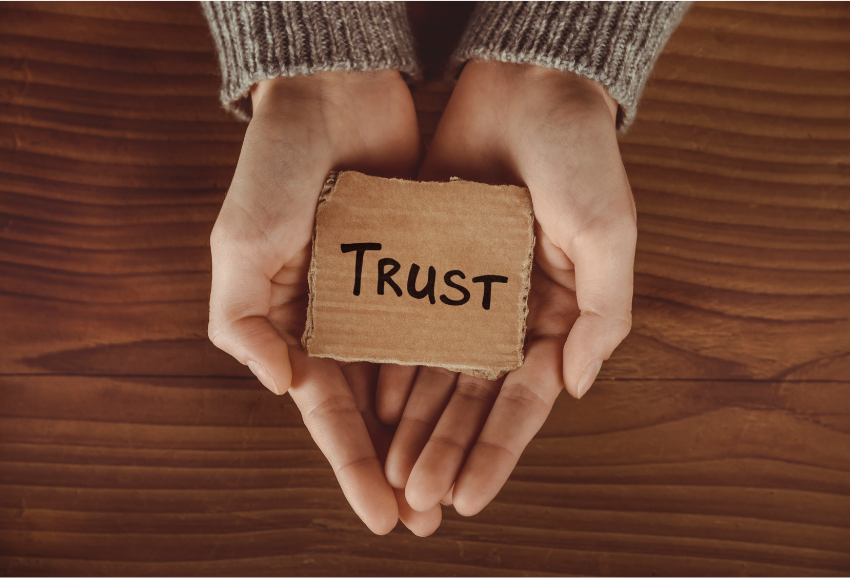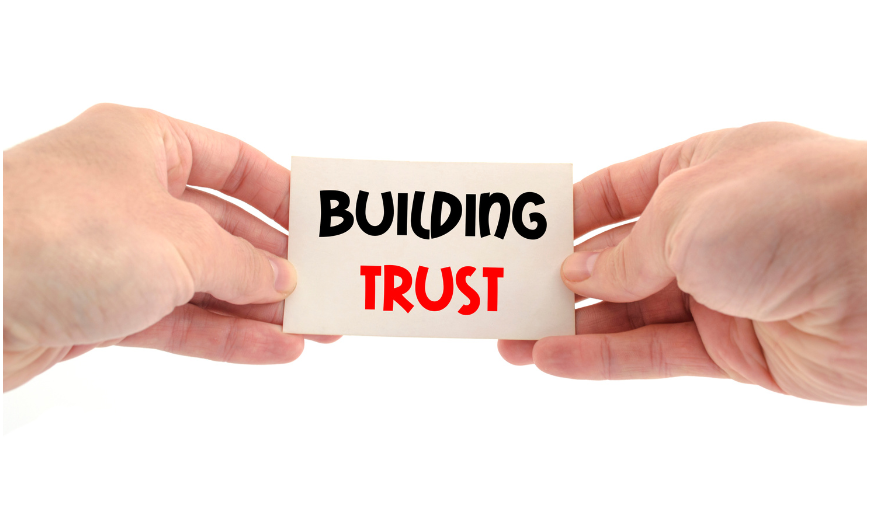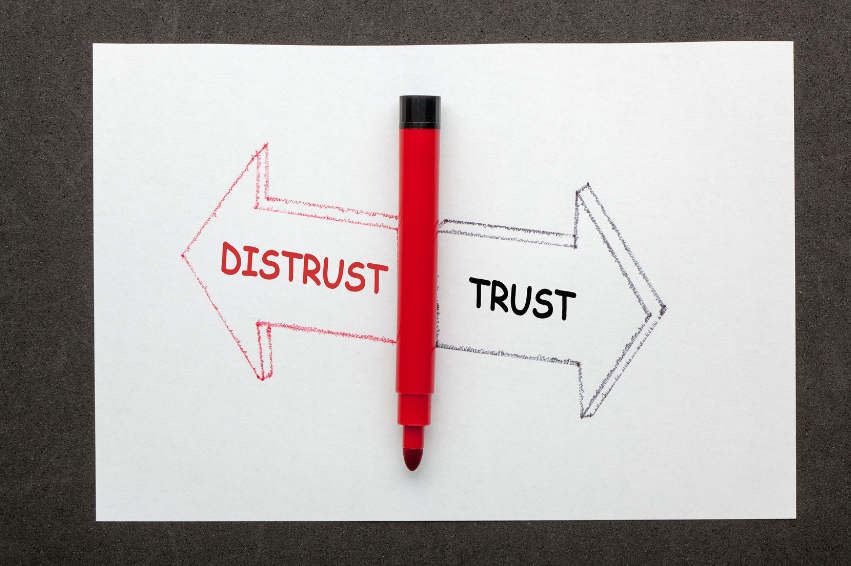Trust does not simply happen. Building Trust is a Conscious Choice
In the second in the series of articles on Trust, we explore What Trust is. What does the word mean?
Imaginal has adopted the following definition, Trust is ‘having assured reliance on the character, ability, strength or truth of someone or something.’
We see Trust as a “currency”.
The value of a currency will fluctuate in response to internal and external factors and the same applies to Trust which fluctuates depending on the climate in the business.
When Trust has been depleted or decreased in an organisation, the organisation’s value and impact decreases. The climate in such an organisation is usually one of blame and / or fear which means that ultimately the climate becomes toxic.
Conversely when Trust is high, the organisation increases in value and impact. Building Trust in an organisation creates stability and leads to it being renewable and sustainable.
Organisations that have high levels of Trust are described as being reliable, responsible, honest, open, having integrity and do not cause harm to either internal or external stakeholders.
It is essential that organisations ensure they know the level of Trust at critical phases on their journey. To grow and scale an organisation requires high levels of Trust to prevail.
Trust does not simply happen
However, Trust is not something that just happens. It is not a rite of passage. Trust must be earned, and it can only be earned when it is demonstrated through communication, whether that is via actions, behaviour, the spoken or written word.
Trust and communication go hand in hand and the way communication occurs and is experienced within an organisation illustrates the level of Trust that exists.
The Responsibility for Building Trust
Trust needs to be built from the start of an organisation’s journey, and it is the responsibility of the founder(s) to build that Trust.
The founder(s) set the tone for the climate that is experienced within an organisation. They are the role models who create or deplete Trust. As stated in the previous article, Trust lays the foundation for the climate that is created.
Trust and Leadership Styles
A Command-and-Control style of leadership will not usually result in Trust being built. It may appear that there is Trust under this style. However, the truth is that what is experienced, the climate that is created is one of compliance. This leadership style is transactional, and the focus is on efficiency.
Trust requires genuine relationships to be built that result in commitment and dedication.
Where the climate is based on Trust, transformations occur, and people are inspired and engaged to take responsibility and ownership which creates greater outcomes than a climate that is based upon compliance. The focus in an organisation that has high levels of Trust is effectiveness.
Stephen Covey has coined the term Trust and Inspire¹ as the leadership style that is in opposition to that of Command and Control and which enables Trust to be developed in an organisation.
Building Trust is a Conscious Choice
It is important to reiterate that building Trust is a conscious choice which must be made by the founder(s) and leaders within an organisation. It cannot be left up to chance because doing so will lead to distrust and a toxic climate.
In the next article we will explore the Common Barriers to Building Trust in an Organisation.
¹Trust & Inspire, Stephen M. R. Covey with David Kasperson, McKinlee Covey and Gary T. Judd




